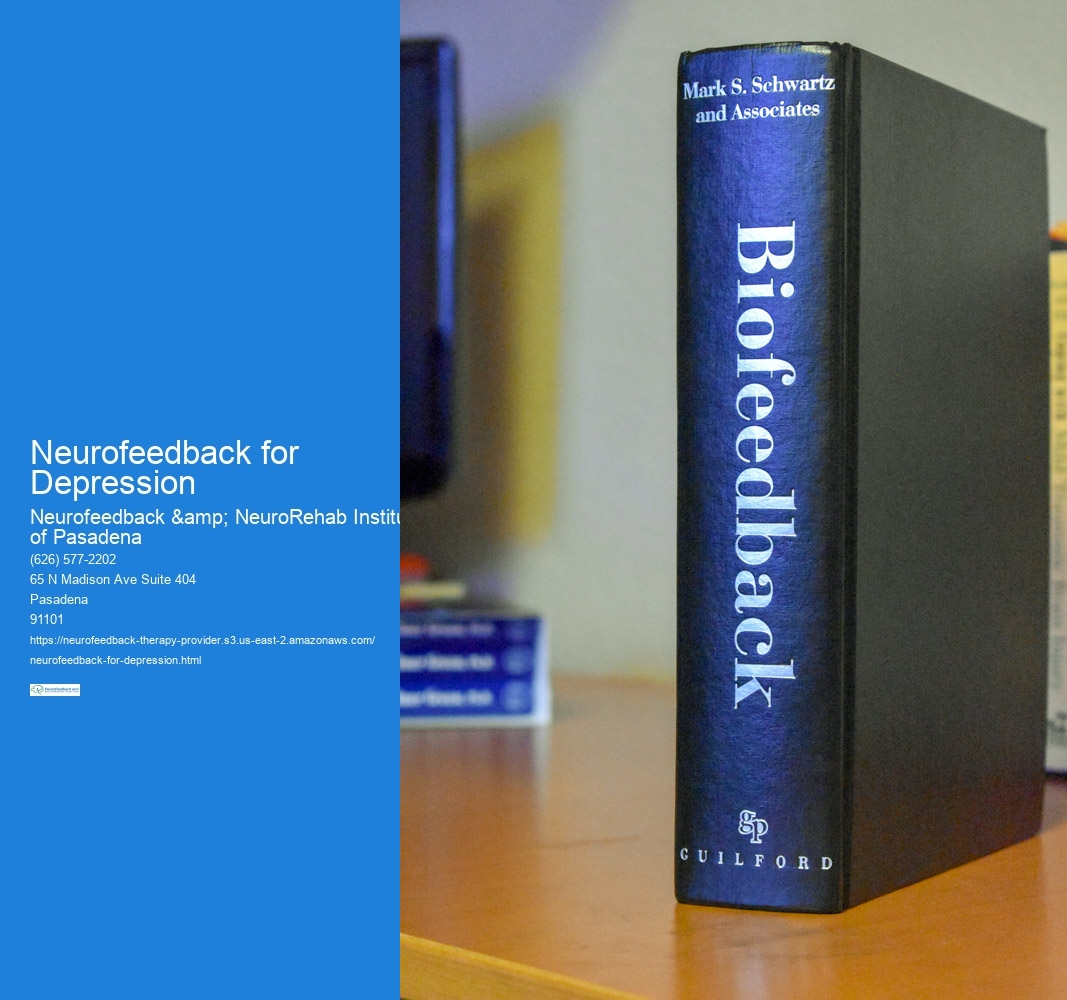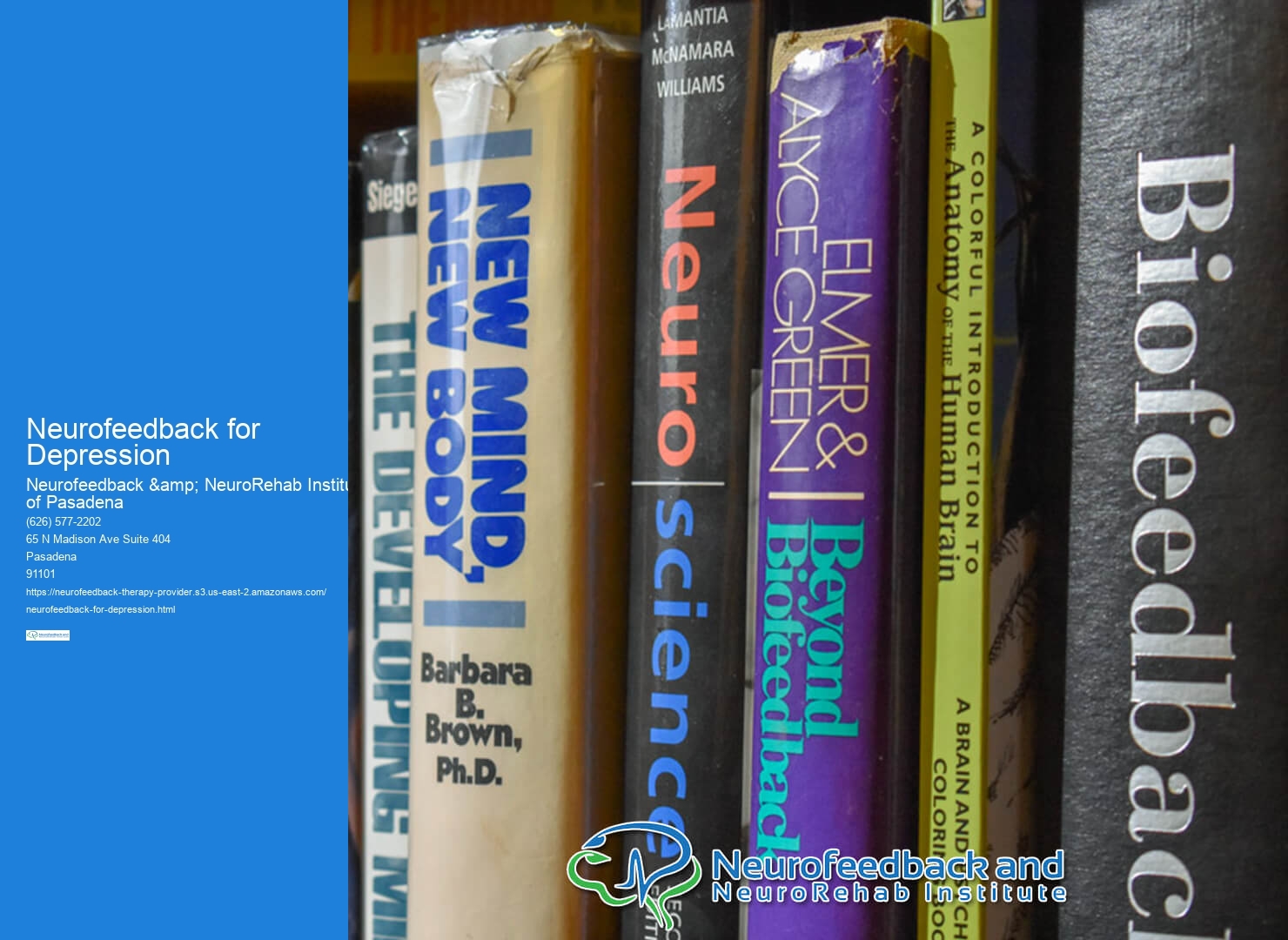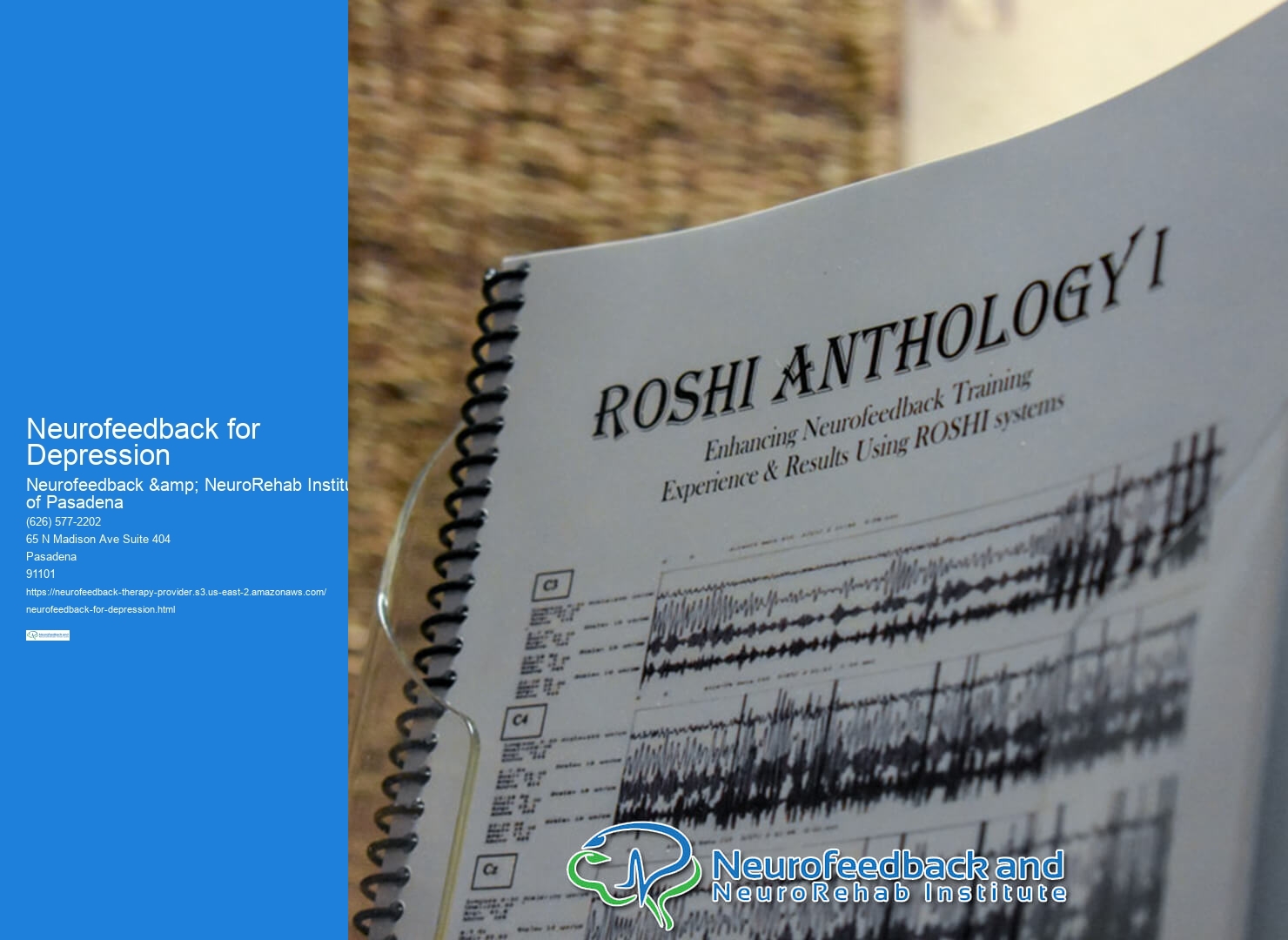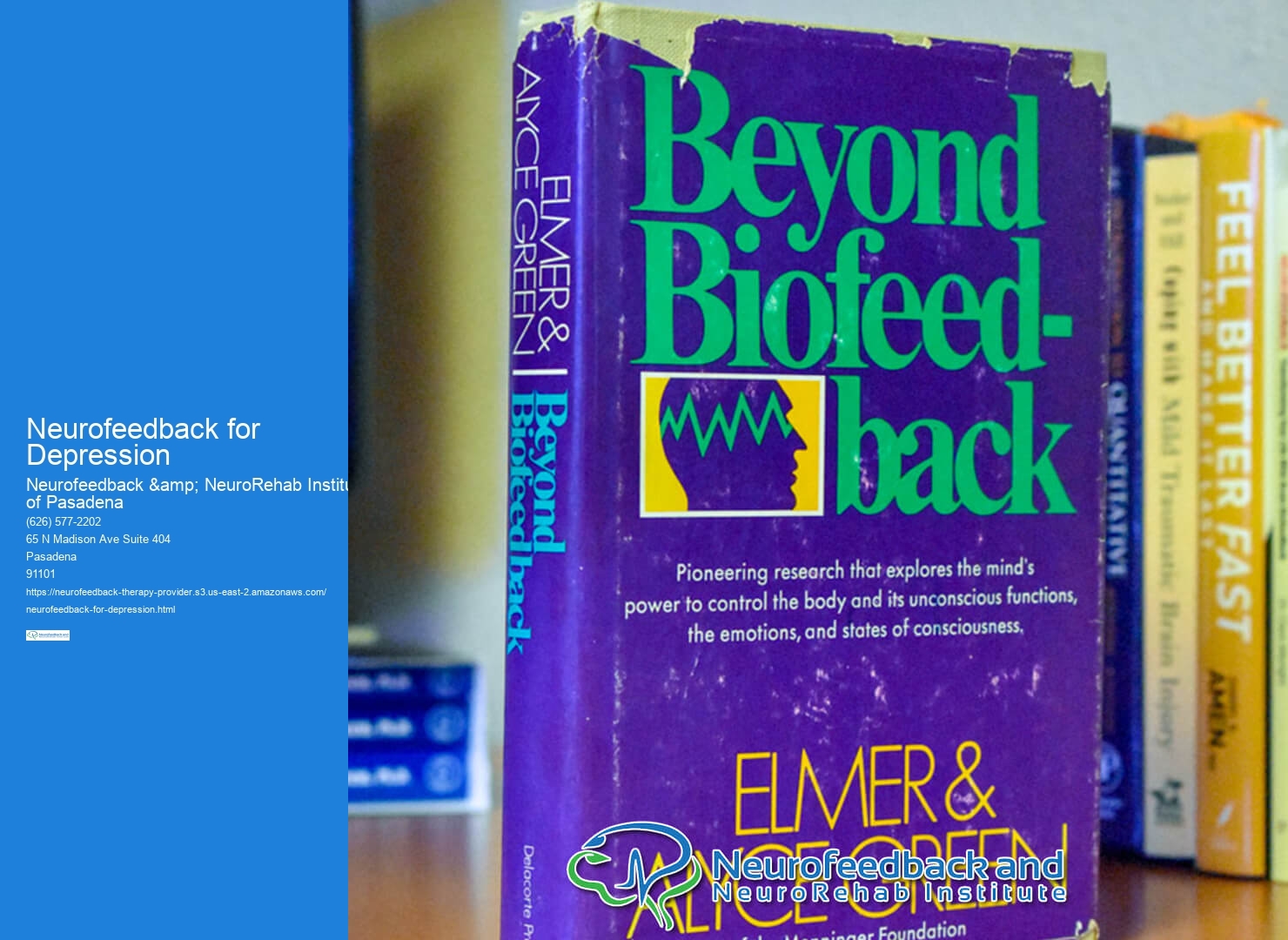

Neurofeedback targets the brain's activity related to depression by focusing on regulating specific brainwave patterns associated with mood regulation and emotional processing. Neurofeedback Treatment Center By using real-time monitoring of brainwave activity, neurofeedback aims to train the brain to self-regulate and optimize its functioning, thereby reducing depressive symptoms. This is achieved through operant conditioning, where individuals receive feedback on their brainwave patterns and learn to modify them through reinforcement, leading to improved emotional well-being.
Specific neurofeedback techniques used to address depressive symptoms may include sensorimotor rhythm (SMR) training, alpha-theta training, and low-frequency training. SMR training aims to enhance focus and reduce hyperactivity in the brain, while alpha-theta training targets relaxation and emotional processing. Low-frequency training focuses on regulating slow brainwave activity associated with depressive symptoms, aiming to rebalance brain functioning and alleviate depressive symptoms.
EEG Neurotherapy ExpertNeurofeedback can be used as a standalone treatment for depression, although it is often used in conjunction with other therapies for comprehensive care. It can complement traditional treatments such as medication and psychotherapy, offering a non-invasive and drug-free approach to addressing depressive symptoms. When used in combination with other therapies, neurofeedback can enhance treatment outcomes and provide a holistic approach to managing depression.

Specific brainwave patterns targeted by neurofeedback to alleviate depression symptoms include increased alpha and theta brainwave activity, as well as balanced beta and delta wave patterns. These patterns are associated with relaxation, emotional processing, and overall brainwave coherence, which are crucial for regulating mood and reducing depressive symptoms. By training the brain to achieve and maintain these optimal patterns, neurofeedback aims to promote emotional well-being and alleviate depression.
EEG Neurofeedback SpecialistThe timeline to see results from neurofeedback treatment for depression can vary depending on individual factors such as the severity of symptoms, treatment frequency, and overall responsiveness to the therapy. Some individuals may start to notice improvements within a few sessions, while others may require more extended treatment to experience significant changes. Generally, consistent and regular neurofeedback sessions over several weeks to months are recommended to achieve lasting results in managing depressive symptoms.

Neurofeedback for depression typically has minimal contraindications and potential side effects, making it a safe and well-tolerated treatment option for many individuals. However, it is essential to undergo a thorough assessment and consultation with a qualified healthcare professional to ensure that neurofeedback is suitable for each individual's specific needs and circumstances. Neurotherapy Clinic Potential side effects are rare and may include temporary fatigue or mild discomfort during the sessions, which typically resolve quickly.
Research studies and clinical evidence support the effectiveness of neurofeedback for treating depression, demonstrating its potential to improve mood regulation and reduce depressive symptoms. Studies have shown that neurofeedback can lead to significant reductions in depressive symptoms, with some individuals experiencing long-term benefits even after completing the treatment. Additionally, neurofeedback has been found to be a promising intervention for treatment-resistant depression, offering a non-pharmacological approach to addressing this challenging condition. Overall, the growing body of research supports the use of neurofeedback as a valuable tool in the comprehensive management of depression.
Neurotherapy Specialist
Neurofeedback therapy for seniors typically does not have strict age restrictions, as it can be beneficial for individuals in their later years. However, the suitability of neurofeedback for seniors may depend on their overall health, cognitive function, and specific neurological conditions. It is important for healthcare professionals to assess the individual's medical history, cognitive abilities, and any potential contraindications before recommending neurofeedback therapy. Factors such as cognitive decline, dementia, or other age-related neurological conditions may influence the appropriateness of neurofeedback for seniors. Additionally, personalized treatment plans and careful monitoring are essential to ensure the safety and effectiveness of neurofeedback therapy for older adults.
The typical session durations for Neurofeedback can vary depending on the individual's needs and the specific protocol being used. However, a standard session usually lasts between 30 to 60 minutes. The duration may be adjusted based on the client's response to the treatment and the specific goals of the Neurofeedback training. Factors such as the type of neurofeedback equipment, the complexity of the neurofeedback protocol, and the individual's unique neurophysiological profile can also influence the session duration. It's important for clients to discuss their specific needs and goals with a qualified neurofeedback practitioner to determine the most suitable session duration for their treatment.
Neurofeedback therapy for children typically does not have strict age restrictions, as it can be tailored to suit the individual needs of each child. However, it is important for parents and caregivers to consult with a qualified healthcare professional, such as a pediatric neurologist or psychologist, to determine if neurofeedback is suitable for their child's specific developmental stage and needs. Factors such as cognitive development, attention span, and ability to follow instructions may influence the appropriateness of neurofeedback for a particular child. Additionally, the underlying condition being treated, such as ADHD or anxiety, may also impact the decision to pursue neurofeedback therapy for a child. It is essential to seek guidance from a qualified practitioner to ensure that neurofeedback is a safe and effective option for children.
Neurofeedback programs designed to enhance intuition are gaining attention in the field of cognitive enhancement. These programs utilize advanced brainwave monitoring and training techniques to optimize neural pathways associated with intuitive processing. By targeting specific brain regions and frequencies, such as the prefrontal cortex and alpha waves, these programs aim to improve intuitive abilities, including insight, gut feelings, and subconscious decision-making. Through personalized training protocols and real-time feedback, individuals can potentially strengthen their intuitive skills and develop a heightened sense of intuition. As the understanding of neuroplasticity and brainwave modulation continues to evolve, the potential for neurofeedback to enhance intuition is an intriguing area of research and development in the field of cognitive enhancement.
A typical alpha brainwave training session usually lasts between 20 to 30 minutes. During this time, individuals engage in activities such as meditation, biofeedback, or neurofeedback to enhance their alpha brainwave activity. These sessions are designed to promote relaxation, focus, and mental clarity by encouraging the brain to produce more alpha waves. The duration of the session may vary depending on the specific protocol or program being followed, as well as individual preferences and needs. It is important to consult with a qualified practitioner or instructor to determine the most suitable duration for alpha brainwave training sessions.
Neurofeedback, a form of biofeedback that focuses on brainwave activity, has shown promise in helping individuals with anger management. By providing real-time information about brainwave patterns, neurofeedback allows individuals to learn how to regulate their emotions and responses. Through this process, individuals can develop greater self-awareness and control over their emotional reactions, leading to improved anger management. Neurofeedback targets specific brain regions and neural pathways associated with emotional regulation, such as the prefrontal cortex and amygdala, to promote more adaptive responses to anger triggers. Additionally, neurofeedback can help individuals develop relaxation techniques and coping strategies to better manage anger. Overall, neurofeedback offers a personalized and targeted approach to addressing anger management by directly influencing brain activity and promoting emotional self-regulation.